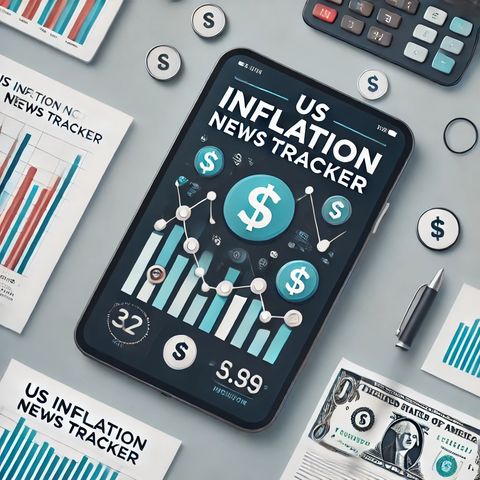ECB Braces for Potential Shockwaves from Trump 2.0 Presidency

Download and listen anywhere
Download your favorite episodes and enjoy them, wherever you are! Sign up or log in now to access offline listening.
ECB Braces for Potential Shockwaves from Trump 2.0 Presidency
This is an automatically generated transcript. Please note that complete accuracy is not guaranteed.
Description
European Central Bank (ECB) officials are grappling with the potential economic ramifications of a new Trump presidency, labeled by some as Trump 2.0. This prospect has introduced fresh tensions within...
show moreThe ECB, responsible for maintaining price stability in the euro area, faces the challenge of anticipating and mitigating potential economic shocks. Some ECB members fear that policies from a new Trump administration might trigger inflationary pressures across Europe, complicating the bank's mandate of keeping inflation at a steady rate, ideally close to but below 2%. Such pressures could arise from potential disruptions in global trade, resulting in increased costs of goods and services.
Inflation, a sustained increase in the price level of goods and services, can erode purchasing power and is closely monitored by central banks worldwide. With the possibility of Trump 2.0 instigating economic volatility, the ECB's governing council members are considering various strategies to maintain economic stability. While some members advocate for immediate preemptive measures, such as adjusting interest rates or boosting asset purchases, others prefer a more reactive approach, adapting policies as situations unfold.
The ongoing debate within the ECB highlights the diverse economic philosophies amongst its council members. Hawks, who prioritize controlling inflation often through tighter monetary policies, are concerned that any delay in action might let inflation spiral if Trump's policies lead to significant currency fluctuations or import tariffs that push up prices. Doves, conversely, argue for patience, emphasizing that premature tightening of monetary policy could stifle growth, especially if Trump's policies result in a downturn rather than a boom.
Given the European economy's inherent structural challenges, such as varied growth rates and economic resilience across member states, the ECB's task is further complicated. The specter of Trump 2.0 not only adds uncertainty to inflation forecasts but also resurfaces memories of previous economic disruptions caused by swift changes in U.S. trade and fiscal policies. Monitoring these developments is crucial for the ECB as it strives to balance its dual goals of price stability and supporting economic growth.
The ECB's current predicament reflects a broader challenge faced by central banks globally in an era defined by geopolitical uncertainty and the unpredictable impacts of political leadership on economic fundamentals. Experts suggest enhanced communication and cooperation among central banks as a potential buffer against such uncertainties, ensuring that policy tools are employed effectively to maintain economic equilibrium and prevent inflationary or deflationary spirals.
As the debates continue, the ECB remains vigilant, carefully weighing potential responses to a Trump 2.0 scenario. Whether leaning towards intervention or restraint, the bank's decisions will play a pivotal role in shaping the eurozone's economic future, demonstrating the delicate balance required in central banking amidst global political turbulence.
Information
| Author | QP-4 |
| Organization | William Corbin |
| Website | - |
| Tags |
Copyright 2024 - Spreaker Inc. an iHeartMedia Company

Comments